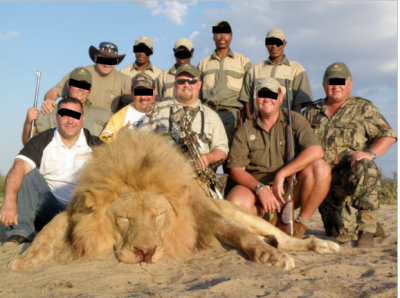|

It shows an average 68% decrease in population sizes of mammals, birds, amphibians, reptiles and fish between 1970 and 2016.
Much quoted in the media, the 83 pages of the WWF (and Zoological Society of London) did not propose a better way forward. Overall, the report did document “impact” of humans on “nature” as largely responsible for the losses.
Largely, the WWF report detailed how “sustainable use” of wildlife – fish for example – has all gone wrong. The entire concept of “sustainable use” should be rightfully challenged.
Basically, “sustainable use” means that there is no harm done to the “capital” of wild resources, just a “harvest” of the “excess”. Sort of like your bank account. Sustainable use of your money means careful management and that you keep your capital more or less intact with deposits not greatly exceeding withdrawals.
But – like most bank accounts, everyone is now living pretty much in debt – paying off mortgages, credit cards, overdraughts, car loans, etc. The world has accepted debt as a status quo, but negative economics based on eventual repayments are not translatable to natural systems. There, increasing debt means blighted ecosystems and biodiversity lost forever.
Yet, the concept of “sustainable use” is deeply embedded in the philosophy and modus operandum of very many conservation organizations. Including WWF, IUCN.
But biodiversity is not a “lender” of products. Natural ecosystems are highly complicated, and the concept of sustainable use has long been proven to be unsustainable, just a programme of borrowing that will inevitably result in wildlife bankruptcy.
Wither African lions?
Relegated, seemingly eternally, to the undefinable category of “vulnerable” by the IUCN, and still allowed to be trophy hunted by CITES with permits, and still ignored by major conservation organisations, African and international governments, what future is there for this species?
LionAid, using extensive information and analyses recently published an entirely fact based estimate of African lion populations – no more than 9,600 remaining.
What needs to change to better conserve those few lions on the continent?
1. The few African lion range states need to classify lions as a nationally endangered species. All the evidence is there. No more complacency or unsubstantiated claims of “legal and sustainable offtake” by foreign trophy hunters.
2. The IUCN needs to re-classify African lions as “endangered”. What more evidence do they need? Their reluctance to afford lions an “endangered” status was based on the evidence that lions in South African fenced reserves were doing well. Brushing aside “real wild” lion population declines across the continent?
3. All conservation organizations, hunting organizations and African lion range states need to condemn South Africa’s captive lion breeding programmes to provide trophy hunters and bones to Asian TCM destinations.
4. African lion range states need to implement and enforce comprehensive lion conservation programmes. No half measures. No false acceptance of the defeated concept that “trophy hunting is a conservation measure”.
It is crisis time for African lions. Sure, their conservation is complicated and challenging. But a way forward can and should be found.
|




